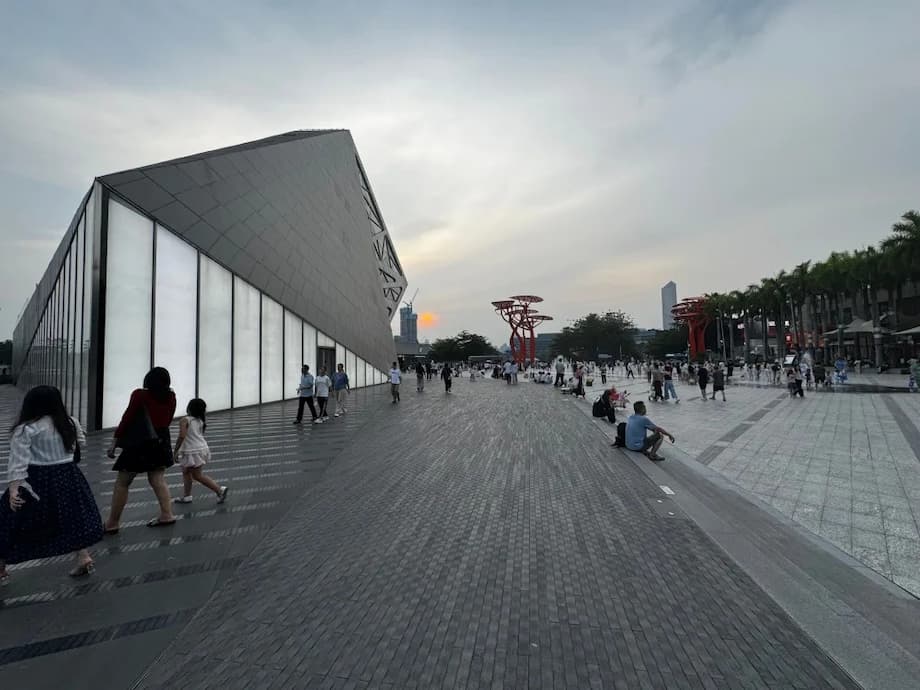AI in Malaysia’s Smart Cities: A New Era Dawns
Imagine waking up in Kuala Lumpur to find your morning kopi-o already brewing, your e-hailing ride to the train station booked, and a gentle reminder from your digital assistant to grab an umbrella because rain clouds are rolling in. This isn’t a distant dream—it’s the promise of artificial intelligence (AI) woven into the fabric of daily life. Across Asia, cities like Hong Kong and Shenzhen are already living this reality. Now, Malaysia is accelerating its own journey to become a regional leader in smart, AI-powered urban living.
- AI in Malaysia’s Smart Cities: A New Era Dawns
- What Makes a City “Smart”—and Why AI Is the Game Changer
- Malaysia’s Smart City Initiatives: From Vision to Action
- AI at Work: Real-World Applications in Malaysian Cities
- Economic Potential: AI as a Catalyst for Growth
- Challenges on the Road to Smart Cities
- Governance, Ethics, and Building Public Trust
- Learning from Asia: Lessons from Hong Kong, Shenzhen, and Beyond
- What’s Next: The Path to a Smarter, More Inclusive Malaysia
- In Summary
AI refers to computer systems capable of performing tasks that typically require human intelligence—understanding language, recognizing images, solving problems, and learning from data. Unlike traditional software, AI adapts, spots patterns, and makes predictions with remarkable speed and accuracy. In Malaysia, AI is already quietly shaping daily life, from e-commerce recommendations to banking fraud detection and dynamic ride-hailing fares. Yet, compared to its neighbors, Malaysia’s smart city transformation is just beginning to gather pace.
What Makes a City “Smart”—and Why AI Is the Game Changer
Smart cities use digital technology and data to improve urban services, infrastructure, and quality of life. AI is the engine that powers this transformation, enabling cities to:
- Predict and manage traffic congestion in real time
- Optimize energy use and reduce carbon emissions
- Deliver personalized public services and healthcare
- Enhance safety through intelligent surveillance and emergency response
- Engage citizens with digital platforms and transparent governance
In Hong Kong, for example, the Mass Transit Railway (MTR) uses AI-driven sensors and algorithms to manage crowd flow and adjust train frequency, preventing platform congestion. Hospitals deploy AI to pre-screen X-rays, freeing doctors for complex cases, while government chatbots handle tax and permit applications in multiple languages. Shenzhen’s AI-powered traffic control system, built with Huawei, processes 40 times more data than traditional systems, detecting fake plates and traffic violations in real time.
Malaysia is drawing lessons from these pioneers as it crafts its own smart city blueprint, aiming to leapfrog into a future where AI is not just a tool, but a trusted partner in urban life.
Malaysia’s Smart City Initiatives: From Vision to Action
Malaysia’s journey toward smart cities is guided by a series of national strategies and pilot projects. The AI City Initiative, spearheaded by the Ministry of Digital and the Malaysia Digital Economy Corporation (MDEC), is at the heart of this transformation. The program aims to accelerate AI adoption in urban management, improve quality of life, and position Malaysia as a digital leader in ASEAN.
The initiative’s first projects are launching in Putrajaya, Malaysia’s administrative capital, with plans to expand nationwide. Key focus areas include:
- Digital Twin Technology: Creating a virtual replica of the city for urban planning, traffic management, and disaster response.
- Smart Tree Inventory & Risk Monitoring: Using AI to profile trees and predict risks to citizen safety.
- Digital Avatar for City Data: An interactive AI-powered avatar that delivers real-time analytics for city planning and citizen engagement.
These projects are not just about technology—they’re about building a collaborative ecosystem. City councils, solution providers, MDEC, Digital Nasional Berhad (DNB), and the National AI Office (NAIO) are all working together to turn Malaysia’s smart city vision into reality.
Malaysia’s approach is collaborative and people-centric, involving government agencies, local authorities, private sector partners, and academia. Academic institutions and industry players are engaged in research and development, focusing on areas like the Internet of Things (IoT), data analytics, and sustainable technologies. Key cities such as Kuala Lumpur, Cyberjaya, Iskandar Malaysia, Penang, Melaka, Putrajaya, and Johor Bahru have launched smart city projects ranging from smart parking and intelligent traffic management to renewable energy adoption and digital infrastructure upgrades.
AI at Work: Real-World Applications in Malaysian Cities
Malaysia’s smart city journey is already producing tangible results. The Kuala Lumpur Command & Control Centre (KLCCC), managed by City Hall (DBKL), acts as the city’s central nervous system. It integrates data from over 5,000 CCTV cameras, traffic sensors, and emergency services to monitor and manage urban life in real time. AI-powered analytics help predict traffic jams, optimize emergency response, and even estimate carbon emissions.
Digital twin technology is being piloted in Kuala Lumpur and Putrajaya, providing real-time digital replicas of the city. These virtual models support urban planning, infrastructure maintenance, and disaster management. For example, AI-driven flood alerts and predictive analytics help authorities respond faster to environmental challenges, reducing costs and improving public safety.
Other AI-driven solutions in Malaysian cities include:
- Smart Parking: Platforms like ParkEasy use AI to guide drivers to available parking spots, reducing congestion and emissions.
- Intelligent Street Lighting: Adaptive lighting systems save energy and improve safety.
- E-Government Services: AI chatbots and digital platforms streamline permit applications, tax filings, and public feedback.
- Healthcare: AI tools like DR. MATA assist in early disease detection, while cloud-based management systems improve clinic efficiency.
Malaysia’s smart city initiatives are guided by frameworks and guidelines on data privacy, security, and interoperability. The goal is not just to deploy technology, but to create sustainable, inclusive, and resilient urban environments.
Economic Potential: AI as a Catalyst for Growth
The economic stakes are high. According to Malaysia’s Digital Minister Gobind Singh Deo, AI adoption could unlock up to US$113.4 billion in productivity gains for the country. By 2030, AI is projected to add over USD115 billion to Malaysia’s productive capacity, transforming industries from manufacturing and agriculture to healthcare and finance.
AI is already modernizing agriculture, with platforms like Rakan Tani boosting productivity and financial stability for farmers. In finance, AI-driven fraud detection and risk management are making transactions safer and more efficient. The National Fraud Portal, launched in 2024, uses AI to combat financial fraud, significantly reducing response times and losses.
Malaysia’s digital economy is on track to contribute 25.5% to national GDP by 2025, with AI, 5G, and cloud computing as key drivers. The government is attracting foreign tech investments through tax incentives, advanced infrastructure, and the Digital Free Trade Zone (DFTZ). Major events like the Smart City Expo Kuala Lumpur 2025 and the ASEAN AI Malaysia Summit are bringing together global experts, policymakers, and industry leaders to shape the region’s digital transformation.
Challenges on the Road to Smart Cities
Despite rapid progress, Malaysia faces significant hurdles in its smart city journey. Key challenges include:
- Talent Shortage: Demand for AI professionals far outstrips supply. Only 13% of Malaysia’s micro, small, and medium enterprises (MSMEs) have adopted AI, even though they make up 97% of the business landscape.
- Infrastructure Investment: Building robust digital infrastructure—data centers, cloud computing, and 5G networks—is essential for scaling smart city solutions.
- Data Privacy and Security: As AI systems process vast amounts of personal data, ensuring privacy, transparency, and accountability is critical.
- Regulatory Gaps: Malaysia currently lacks specific legislation regulating AI, though guidelines on AI governance and ethics have been introduced. The government is working on a comprehensive legal framework to address issues like automated decision-making, intellectual property, and algorithmic bias.
- Supply Chain Risks: Malaysia relies on imported AI chips, mainly from China, Taiwan, and the US. Export restrictions and tariffs could disrupt supply and slow AI adoption. The government is seeking to diversify suppliers and invest in local chip design and assembly capabilities.
To address these challenges, Malaysia is investing in talent development through initiatives like Microsoft’s AIForMYFuture, partnerships with universities, and digital literacy campaigns. The National AI Office (NAIO), established in December 2024, coordinates AI policy, regulation, and industry collaboration. The upcoming AI Technology Action Plan 2026–2030 will set the direction for responsible AI adoption and innovation.
Governance, Ethics, and Building Public Trust
Responsible AI adoption is at the core of Malaysia’s smart city strategy. The Ministry of Science, Technology and Innovation has introduced National Guidelines on AI Governance and Ethics, promoting seven core principles: fairness, reliability, privacy, inclusiveness, transparency, accountability, and pursuit of human benefit.
Malaysia’s approach balances innovation with oversight. The government is developing Profiling and Decision-Making Guidelines to address gaps in transparency and accountability, especially for automated decision-making. Intellectual property law is also being reviewed to clarify ownership and protection of AI-generated content.
Public awareness campaigns are underway to educate citizens about AI risks, such as deepfakes and fraud. The government recognizes that building public trust is essential for the widespread adoption of AI in smart cities. As Digital Minister Gobind Singh Deo stated at the World Artificial Intelligence Conference 2025:
“Collaboration is essential in this AI-shaped era. Only through shared commitment, innovation and vigilance can the digital world remain a force for good.”
Malaysia is also leading regional efforts on AI safety as ASEAN Chair in 2025, launching the ASEAN AI Safety Network to promote best practices, research collaboration, and responsible AI use across Southeast Asia.
Learning from Asia: Lessons from Hong Kong, Shenzhen, and Beyond
Malaysia is not reinventing the wheel. By studying the successes and challenges of cities like Hong Kong and Shenzhen, Malaysia is adopting best practices and avoiding common pitfalls. Key lessons include:
- Integrated Command Centres: Centralized hubs like the KLCCC and Hong Kong’s MTR operations center enable real-time data integration and coordinated responses.
- Digital Twins: Virtual city replicas support predictive planning, disaster management, and citizen engagement.
- AI-Driven Public Services: Chatbots, automated translations, and intelligent analytics make government services more accessible and efficient.
- Collaboration Across Sectors: Partnerships between government, industry, and academia drive innovation and scale.
- Ethical and Inclusive AI: Transparent governance and public trust are non-negotiable for sustainable smart city growth.
Malaysia’s vision is to create scalable, people-centric smart cities that can serve as models for the region. As MDEC CEO Anuar Fariz Fadzil put it:
“AI Cities will be the cornerstone of this transformation, uniting digital policy, innovation and public service to drive inclusive, competitive and sustainable growth, laying the foundation for Malaysia’s vision of becoming an ‘AI Nation.'”
What’s Next: The Path to a Smarter, More Inclusive Malaysia
Malaysia’s smart city journey is at a pivotal moment. The foundations are being laid—digital infrastructure, regulatory frameworks, talent development, and collaborative ecosystems. The next phase will focus on scaling successful pilots, integrating AI across more sectors, and ensuring that the benefits of smart cities reach all Malaysians, not just those in major urban centers.
Upcoming events like the Smart City Expo Kuala Lumpur 2025 and the ASEAN AI Malaysia Summit will showcase Malaysia’s progress and foster regional collaboration. The government’s commitment to bridging the digital divide, investing in skills, and building public trust will be critical to realizing the full potential of AI-powered smart cities.
In Summary
- Malaysia is accelerating its smart city transformation, drawing lessons from leading Asian cities and focusing on AI-driven solutions.
- The AI City Initiative and projects in Putrajaya and Kuala Lumpur are pioneering digital twin technology, smart infrastructure, and people-centric services.
- AI adoption could unlock over US$113 billion in productivity gains, transforming industries and boosting the digital economy.
- Key challenges include talent shortages, infrastructure investment, data privacy, regulatory gaps, and supply chain risks.
- Malaysia is developing robust governance, ethical guidelines, and legal frameworks to ensure responsible AI adoption and public trust.
- Collaboration across government, industry, academia, and citizens is central to building inclusive, sustainable, and resilient smart cities.
- Major events in 2025 will highlight Malaysia’s leadership in AI and smart city innovation within ASEAN and beyond.












